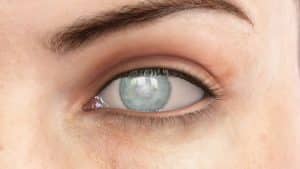When you’re feeling low, people might tell you to go and take a stroll in the fresh air or try some yoga. That’s all very well if you are just having one of those temporary dark moods that everyone has sometimes, but if you’re experiencing clinical depression, even those small steps to alleviate it may seem impossible.
Depression is more than just feeling sad. It’s ongoing feelings of despair and hopelessness that undermine your everyday activities. You lose interest in your favorite hobbies, you lose contact with your closest friends, and the more disconnected you feel, the harder it is to fight your way out again.
One of the most insidious things about depression is that your brain lies to you. It tells you that you shouldn’t make a fuss, it’s all your own fault, and that no one can help you. That’s not true. There are experts who can provide the kind of support you need, but sometimes it takes an effort to find them.
If you have clinical depression, treatment may involve medication, therapy or a combination of the two. Common antidepressants include selective serotonin reuptake inhibitors (SSRIs), serotonin-noradrenaline reuptake inhibitors (SNRIs) and noradrenaline and specific serotonergic antidepressants (NASSAs), which can have varying levels of effectiveness depending on the severity of the depression and your own brain chemistry. Some may also have side effects.
While antidepressants may be able to alleviate some of the immediate symptoms of depression, they don’t always tackle the underlying causes. That’s where therapy can prove useful. Techniques such as cognitive behavioral therapy can be used to identify harmful thought patterns and develop new coping strategies for managing them in the long term. It’s generally a combination of approaches that forms the most effective treatment.
This is partially because the causes of depression, which can be a bit murky, often involve a combination of biological and environmental factors. Biology could be your genes or the specific combination of hormones and chemicals in your brain. Environmental factors could be external stressors, such as long-term financial worries or the grief of losing a loved one.
In some cases, it may not be clear how biology and environment interact. For example, if you have a family history of depression, is that because you’ve passed on a depression gene or is it because family members often have similar socioeconomic circumstances, facing similar difficulties in life?
Not everyone who experiences traumatic life events will develop depression. Just having a parent who suffers doesn’t mean you will. In many cases, it seems that a combination of biological susceptibility and external triggers are necessary to bring on the worst symptoms, so it takes a combination of biological (drugs) and social (therapy) solutions to treat them.
If medication and/or therapy are effective, it will be much easier for you to tackle the small things, like eating proper meals, getting plenty of exercise and ensuring you have enough sleep. These are all things that can make you feel brighter and more energized on a smaller scale, but aren’t enough against the bigger specter of clinical depression.




